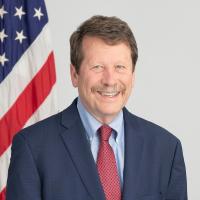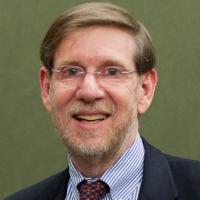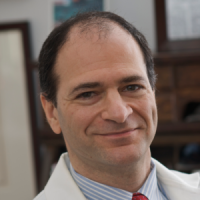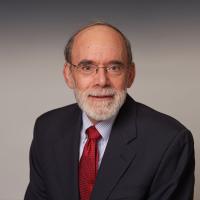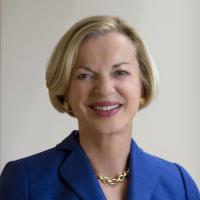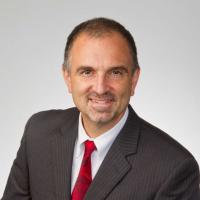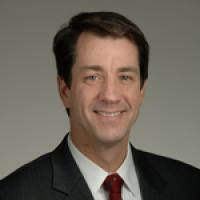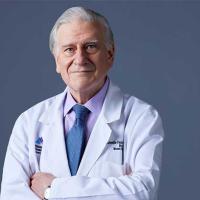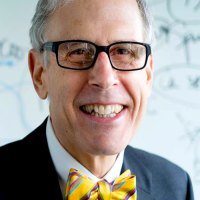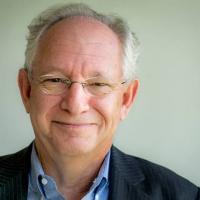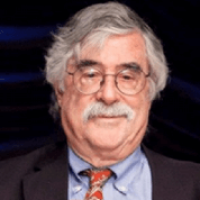Dr. Edward B. Leahey and Michael I. Leahey Lecture Series
Offered in partnership with Department of Medicine Grand Rounds
Learn more about the Dr. Edward B. Leahey and Michael I. Leahey Lecture Series.
19th Annual, "Opportunities for Translational Research in Rare Disease and Common Disease — Perspective from 2003 to 2024"
Speaker: Robert M. Califf, MD, MACC
- June 26, 2024
Dr. Robert M. Califf is a renowned cardiologist, clinical trialist, and health policy leader who twice served as Commissioner of Food and Drugs at the U.S. FDA—first under President Obama (2016–2017) and again under President Biden, beginning in 2022. In both roles, he led efforts to strengthen regulatory science, public health policy, and the agency’s oversight of medical products and tobacco.
Before rejoining the FDA, Dr. Califf served as Head of Medical Strategy and Senior Advisor at Alphabet Inc., supporting health initiatives at Verily Life Sciences and Google Health. He spent much of his academic career at Duke University, where he was Vice Chancellor for Clinical and Translational Research, founding Director of the Duke Clinical Research Institute, and PI of major NIH initiatives including the Clinical Trials Transformation Initiative and Duke’s CTSA.
Internationally recognized for his contributions to cardiovascular medicine, health outcomes, and clinical research, Dr. Califf authored over 1,300 peer-reviewed publications and led several landmark trials. He was elected to the National Academy of Medicine in 2016 and has served on advisory boards across the NIH and FDA. Dr. Califf earned his MD from Duke, completed his residency at UCSF, and returned to Duke for fellowship training in cardiology.

18th Annual, "Clinical Research's Role in Tackling Health Inequities"
Speaker: Consuelo H. Wilkins, MD, MSCI
- February 15, 2023
Dr. Consuelo H. Wilkins is Professor of Medicine and serves as Senior Vice President and Senior Associate Dean for Health Equity and Inclusive Excellence at Vanderbilt University Medical Center. A nationally recognized leader in health equity, Dr. Wilkins has spent her career addressing systemic disparities that affect the health of racial and ethnic minority populations. Her work centers on community-engaged research to advance equity in healthcare delivery, outcomes, and research participation.
She currently leads three major NIH-funded initiatives: the Southeastern Collaborative for Innovative and Equitable Solutions to Chronic Disease Disparities (NIMHD), the Vanderbilt Clinical and Translational Science Award (NCATS), and the national Recruitment Innovation Center (NCATS), part of the Trial Innovation Network. Dr. Wilkins has authored over 100 peer-reviewed publications on health equity and stakeholder engagement. She is an elected member of the National Academy of Medicine and the American Society for Clinical Investigation. Dr. Wilkins received her M.D. from Howard University, completed her residency at Duke, and holds a Master’s in Clinical Investigation from Washington University, where she also trained in Geriatric Medicine.

17th Annual, "United States COVID-19 Response"
Speaker: David Kessler, MD
- April 13, 2022
Dr. David A. Kessler is a physician, legal scholar, and public health leader with decades of experience shaping U.S. health policy and regulation. He most recently served as Chief Science Officer for COVID Response under President Joe Biden. From 1990 to 1997, he was Commissioner of the U.S. Food and Drug Administration, appointed by President George H.W. Bush and reappointed by President Bill Clinton. During his tenure, Dr. Kessler accelerated drug approvals for life-threatening diseases, overhauled medical device regulation, and spearheaded groundbreaking reforms such as nutrition labeling on packaged foods, preventive food safety measures, and the first federal efforts to regulate tobacco marketing to children. He also launched the MEDWatch program and created the FDA’s Office of Criminal Investigation. His leadership was widely credited with restoring public trust in the FDA, transforming it into a more proactive advocate for public health.
Beyond the FDA, Dr. Kessler has held leadership roles in academia, serving as Dean of both Yale School of Medicine and UCSF School of Medicine. He is currently a Professor (on leave) of Pediatrics and Epidemiology & Biostatistics at UCSF. A magna cum laude graduate of Amherst College, he holds an M.D. from Harvard Medical School and a J.D. from the University of Chicago Law School. His multidisciplinary background also includes clinical pediatrics, public health, teaching food and drug law at Columbia, and consulting for the U.S. Senate. He is the author of several bestselling books on food policy and mental health, including The End of Overeating and Capture, and has published in NEJM, JAMA, and other major journals. Dr. Kessler is a member of the National Academy of Medicine and has received numerous honors, including the NAS Public Welfare Medal and the American Cancer Society’s Medal of Honor.

16th Annual, "Evaluating and Implementing COVID-19 Vaccines in a Rapidly Evolving Pandemic"
Speaker: Magdalena Sobieszczyk, MD, MPH
- June 16, 2021
Dr. Magda Sobieszczyk is a Professor of Medicine and Chief of Infectious Diseases at the Columbia University Irving Medical Center in New York. She received her degrees from Harvard and Columbia College of Physicians and Surgeons. Subsequently she completed her clinical training in internal medicine and infectious diseases at the Columbia University Irving Medical Center.
She is a clinical virologist and the principal investigator of the NIH-funded Columbia Collaborative Clinical Trials Unit which has been advancing the science of HIV and, most recently, of emerging infections like SARS-CoV-2. Her research focuses on the development, testing, and implementation of biomedical strategies to prevent HIV infection, specifically HIV vaccines, monoclonal antibodies and pre-exposure prophylaxis (PrEP) and she has led many international studies in this area.
Her work also extends to testing interventions that address healthcare disparities and access to HIV and COVID care and prevention in the Black and Latino communities. Since the start of the COVID-19 pandemic, she has led and has been involved in several studies evaluating the seroprevalence, epidemiology and clinical sequelae of SARS-CoV-2, as well as studies that focus on assessing vaccine responses and post-vaccine course in diverse hosts. At the national and local level, she has led efficacy studies testing COVID-19 vaccines and novel interventions to prevent and treat COVID-19.

15th Annual, "The Ethics of Inclusion: Cultivating Trust in Precision Medicine"
Speaker: Sandra Soo-Jin Lee, PhD
- May 22, 2019
Dr. Sandra Soo-Jin Lee is Chief of the Division of Ethics and Professor of Medical Humanities & Ethics at Columbia University. A medical anthropologist by training, she leads major NIH-funded bioethics research on equity, inclusion, and governance in genomics and precision medicine. Dr. Lee co-directs the NIH-funded Center for ELSI Resources and Analysis (CERA/ELSIhub) and has chaired the ELSI Congress. She serves on national advisory committees, including SACHRP, and sits on multiple scientific and editorial boards. A Hastings Center Fellow, she has held fellowships from the Rockefeller Foundation and Wenner-Gren Foundation. At Columbia, she directs the Team Science Program and co-leads the Justice Dialogues.

14th Annual, "Inflammation and Atherothrombosis: From Population Biology to Proven Intervention"
Speaker: Paul M. Ridker, MD, MPH, FACC, FAHA
- May 2, 2018
Dr. Paul M. Ridker is the Eugene Braunwald Professor of Medicine at Harvard Medical School and Director of the Center for Cardiovascular Disease Prevention at Brigham and Women's Hospital. A global leader in cardiovascular medicine, Dr. Ridker is best known for his groundbreaking research into the role of inflammation in atherosclerosis and heart disease, particularly through his work on C-reactive protein (CRP) as a marker and mediator of cardiovascular risk. His scientific contributions have helped reshape clinical understanding of the inflammatory basis of heart attacks and strokes, shifting prevention strategies toward early detection and targeted intervention.
A graduate of Brown University, Dr. Ridker earned his medical degree from Harvard Medical School and his MPH from the Harvard School of Public Health. He has led numerous landmark clinical trials, including JUPITER, CANTOS, and CIRT, which test the inflammatory hypothesis of atherothrombosis and explore new pathways for prevention and treatment. He is the author of over 800 peer-reviewed articles, five textbooks, and holds patents related to cardiovascular biomarkers. His work has earned him high-profile accolades, including the Distinguished Scientist Award from the American Heart Association and inclusion in Time magazine’s “Top 100 Most Influential People in the World.” Dr. Ridker continues to advance predictive medicine and shape global cardiovascular prevention efforts through both academic research and clinical leadership.
![]()
13th Annual, "Genomics Enters Medicine: Ethical Challenges Associated with the Return of Results to Patients"
Speaker: Paul S. Appelbaum, MD
- January 25, 2017
Dr. Paul Appelbaum is the Elizabeth K. Dollard Professor of Psychiatry, Medicine, and Law at Columbia University, where he directs the Division of Psychiatry, Law, and Ethics and the Center for Research on Ethical, Legal, and Social Implications (ELSI) of Psychiatric, Neurologic, and Behavioral Genetics. He also serves as Research Psychiatrist at the New York State Psychiatric Institute and is affiliated faculty at Columbia Law School. A national leader in psychiatric ethics, Dr. Appelbaum has shaped the fields of research ethics, informed consent, decision-making capacity, and the intersection of genetics with law and mental health.
Dr. Appelbaum is a former Chair of Psychiatry at the University of Massachusetts Medical School and past president of the American Psychiatric Association and the American Academy of Psychiatry and the Law. For over four decades, his research has explored how ethical and legal principles affect clinical practice, especially around consent, confidentiality, and IRB decision-making. He leads multiple NIH-funded studies, including on genomic sequencing, stigma, and psychiatric genetics in legal contexts. An elected member of the National Academy of Medicine, he has received numerous awards for his contributions to forensic psychiatry, bioethics, and psychiatric jurisprudence, and currently chairs the APA’s DSM Steering Committee and the World Psychiatric Association’s Ethics Committee. Dr. Appelbaum received his M.D. from Harvard Medical School and trained in psychiatry at the Massachusetts Mental Health Center.

12th Annual, "21st Century Biomedicine: Translating Discovery to Patient Care"
Speaker: Elizabeth G. Nabel, MD
- February 3, 2016
Dr. Betsy Nabel is a renowned cardiologist, biomedical researcher, and academic leader, currently serving as President Emerita of Brigham and Women’s Health Care and Professor of Medicine at Harvard Medical School. From 2010 to 2021, she led Brigham through a decade of transformative growth, advancing precision medicine, translational research, and population health initiatives, while launching a $1 billion campaign to foster innovation and health equity.
Previously, Dr. Nabel served as Director of the NIH’s National Heart, Lung, and Blood Institute (NHLBI), where she championed groundbreaking programs in genomics, stem cell research, and women’s cardiovascular health, including the nationally recognized Red Dress campaign. She also led global health efforts, establishing Centers of Excellence in developing countries. An expert in cardiovascular molecular genetics, she has authored over 250 publications and holds 17 patents. She served as Chief Health and Medical Advisor to the NFL and is a member of the National Academy of Medicine and the American Academy of Arts and Sciences. Dr. Nabel received her M.D. from Weill Cornell and trained at Brigham and Women’s Hospital.

11th Annual, "Biotechnology Innovation: Translating Genetics and Basic Science Discoveries to Therapies"
Speaker: George D. Yancopoulos, MD, PhD
- March 4, 2015
Dr. George Yancopoulos joined Regeneron in 1989 as its Scientific Founder and is currently the Chief Scientific Officer and President of Regeneron Laboratories. He received his M.D. and Ph.D. in Biochemistry and Molecular Biophysics from Columbia University. In the 1990s, Dr. Yancopoulos was the 11th most highly cited scientist in the world, and in 2004 he was elected to both the National Academy of Sciences and the American Academy of Sciences. Dr. Yancopoulos, together with key members of his team, is a principal inventor and developer of Regeneron's three FDA-approved drugs - EYLEA® (aflibercept) Injection, ZALTRAP® (ziv-aflibercept) Injection for Intravenous Infusion, and ARCALYST® (rilonacept) Injection - as well as of Regeneron's foundational technologies for target and drug development, such as its proprietary TRAP technology, VelociGene® and VelocImmune®. These technologies have produced Regeneron’s robust pipeline of fully human antibodies targeting eye disease, cardiovascular disease, asthma and other allergic diseases, inflammatory conditions and cancer. In 2014, Dr. Yancopoulos and his team launched the Regeneron Genetics Center, a major new initiative in human genetic research.

10th Annual, "Catalyzing Translational Innovation"
Speaker: Christopher P. Austin, MD
- June 11, 2014
Dr. Christopher P. Austin is a physician-scientist and translational science leader who served as the founding Director of the National Center for Advancing Translational Sciences (NCATS) at the NIH from 2012 to 2021. Appointed by NIH Director Dr. Francis Collins, Dr. Austin led NCATS in developing innovative approaches and technologies to accelerate the process of turning scientific discoveries into effective diagnostics and treatments across a broad range of diseases. He emphasized identifying commonalities across conditions and applying system-wide solutions to improve translational efficiency.
Before leading NCATS, Dr. Austin held key roles at the NIH, including Director of the Division of Pre-Clinical Innovation and the Therapeutics for Rare and Neglected Diseases program. He launched major initiatives like the Molecular Libraries Roadmap and the Knockout Mouse Project. Earlier in his career, he worked at Merck on genome-based drug discovery. A summa cum laude graduate of Princeton University, Dr. Austin earned his M.D. from Harvard Medical School and completed his training in internal medicine, neurology, and genetics at Massachusetts General Hospital and Harvard.

9th Annual, "From Cardiovascular Disease to Health: The Journey of the High-Risk Plaque"
Speaker: Valentin Fuster, MD, PhD
- March 20, 2013
Dr. Valentin Fuster is the Physician-in-Chief at The Mount Sinai Medical Center and Director of Mount Sinai Heart, where he leads both the Zena and Michael A. Wiener Cardiovascular Institute and the Marie-Josée and Henry R. Kravis Center for Cardiovascular Health. He also serves as the Richard Gorlin Professor of Cardiology at the Icahn School of Medicine and General Director of the CNIC in Madrid, Spain.
An internationally renowned cardiologist and researcher, Dr. Fuster has authored over 900 scientific publications and is lead editor of two seminal cardiology textbooks: The Heart and Atherothrombosis and Coronary Artery Disease. He has held leadership roles across major cardiovascular societies, including as Past President of the American Heart Association and World Heart Federation, and has received over 30 honorary doctorates.
Dr. Fuster is the only cardiologist to have received all four major research awards from the world’s leading cardiovascular societies. His many honors include the Principe de Asturias Award, the AHA Research Achievement Award, and the Lefoulon Delalande Grand Prix from the Institute of France. His career spans leadership at Mount Sinai, Harvard, and the Mayo Clinic, and his work has transformed understanding and treatment of coronary artery disease, thrombosis, and cardiovascular imaging.

8th Annual, "The Thrombolysis in Myocardial Infarction (TIMI) Trials: The Ever Changing Management of Cardiovascular Patients"
Speaker: Christopher P. Cannon, MD
- April 27, 2011
Dr. Cannon is a senior investigator in the Thrombolysis in Myocardial Infarction (TIMI) Study Group, leading trials such as TACTICS-TIMI 18, PROVE IT-TIMI 22, and CLARITY-TIMI 28. He earned his MD from Columbia University College of Physicians and Surgeons in New York, and after completing his residency in internal medicine at Columbia Presbyterian Medical Center, he was a cardiovascular fellow at Brigham and Women’s Hospital.
Dr. Cannon has published over 900 original articles, reviews, book chapters or electronic publications on the topic of acute coronary syndromes, including works in Circulation, Journal of the American College of Cardiology, Lancet, and the New England Journal of Medicine. He has received numerous awards, including the Alfred Steiner Research Award, and the Upjohn Achievement in Research Award, and leadership awards from the American College of Cardiology and the American Heart Association.
He is editor-in-chief of the Science and Quality section of ACC’s website, Cardiosource, as well as the journal Critical Pathways in Cardiology and a 60-book series Contemporary Cardiology. He has authored or edited 10 books, including the New Heart Disease Handbook for patients.

7th Annual, "The Randomized Clinical Trial as a Long and Complicated Journey: Lessons from the ACCORD Trial"
Speaker: William T. Friedewald, MD
- April 14, 2010
Dr. William Friedewald is Professor of Clinical Biostatistics and Epidemiology and Vice-Chair of the Department of Epidemiology at Columbia University’s Mailman School of Public Health, as well as Professor of Clinical Medicine at the College of Physicians and Surgeons. He joined Columbia's adjunct faculty in 1991 and transitioned to a full-time role in 1999. A leading expert in clinical trials and epidemiologic research, Dr. Friedewald brings decades of experience from both federal research agencies and the private sector to his teaching and mentorship at Columbia.
Dr. Friedewald earned his MD from Yale School of Medicine and completed a biostatistics fellowship at Stanford. He held senior roles at the National Heart, Lung, and Blood Institute (NHLBI) and the NIH Office of Disease Prevention, overseeing large-scale clinical trials like the Framingham Heart Study and the Multiple Risk Factor Intervention Trial. He later served as Chief Medical Director at MetLife for a decade. At Columbia, he teaches the Capstone course for Biostatistics master's students and directs the Biostatistics Consulting Service. He is a past president of the Society for Clinical Trials and currently chairs the Steering Committee for the ACCORD trial and leads the Coordinating Center for a Traumatic Brain Injury Network.

6th Annual, "Translational Therapeutics of the Arachidonic Acid Cascade"
Speaker: Garret A. FitzGerald, MD
- January 20, 2009
Dr. Garret A. FitzGerald is the McNeil Professor in Translational Medicine and Therapeutics at the University of Pennsylvania in Philadelphia, where he chairs the Department of Pharmacology and directs the Institute for Translational Medicine and Therapeutics. Prior to arriving at the University of Pennsylvania, Dr. FitzGerald was Professor and Chairman of the Department of Medicine and Experimental Therapeutics at University College, Dublin, as well as the founding Director of the Center for Cardiovascular Science. Prior to that move, he was the William Stokes Professor of Experimental Therapeutics and Director of the Division of Clinical Pharmacology at the Vanderbilt University School of Medicine.
Dr. FitzGerald’s research focuses on the prostaglandin pathway, particularly its relevance to cardiovascular disease and inflammation.

5th Annual, "The Joys of Translational Research"
Speaker: Barry S. Coller, MD
- January 15, 2008
Dr. Barry S. Coller is the David Rockefeller Professor of Medicine and Physician-in-Chief of The Rockefeller University Hospital, where he also serves as Vice President for Medical Affairs and founding Director of the Center for Clinical and Translational Science. He leads Rockefeller’s NIH-funded Clinical and Translational Science Award (CTSA) and has helped shape national translational research efforts.
A physician-scientist trained in hematology and pathology, Dr. Coller is renowned for his work on platelet biology, hemostasis, and thrombosis. He developed the monoclonal antibody abciximab (ReoPro®), a breakthrough antiplatelet therapy approved by the FDA in 1994 and used worldwide to prevent complications from coronary interventions. He also created the VerifyNow system, now widely used to monitor antiplatelet therapy.
Dr. Coller previously served as Chair of Medicine at Mount Sinai and held numerous leadership roles at Stony Brook, where he was named Distinguished Service Professor. He is a member of the National Academy of Sciences, the National Academy of Medicine, and a Master of the American College of Physicians. His contributions have earned him 13 U.S. patents and leadership roles in key scientific societies, including past President of the American Society of Hematology.
![]()
4th Annual, "A Vision for the Future of Clinical Research – and How to Position CUMC for That Future"
Speaker: Lee Goldman, MD
- January 23, 2007
Dr. Lee Goldman is a distinguished cardiologist and academic leader who served as Professor of Medicine at Columbia’s Vagelos College of Physicians and Surgeons and Professor of Epidemiology at the Mailman School of Public Health. He also held the role of Dean Emeritus of the Faculties of Health Sciences and Medicine at Columbia University.
From 2006 to 2020, Dr. Goldman served as Executive Vice President and Dean of the Faculties of Health Sciences and Medicine and CEO of Columbia University Irving Medical Center, where he oversaw transformative institutional growth. Prior to his tenure at Columbia, he chaired the Department of Medicine at the University of California, San Francisco.
A graduate of Yale University, where he earned his BA, MD, and MPH, Dr. Goldman was elected to the National Academy of Medicine and served as President of the Association of American Physicians. He was also a fellow of the American College of Cardiology and the AAAS. He served as lead editor of Goldman-Cecil Medicine, a cornerstone text in internal medicine, and received the John Phillips Award, the highest honor from the American College of Physicians.

3rd Annual, "Drug Discovery and Development: The important complimentary roles of industry and academia"
Speaker: Steven M. Paul, MD
- 2006
Dr. Steve Paul is a physician-scientist with over four decades of leadership in neuroscience, neuropharmacology, and central nervous system (CNS) drug development. He is currently a professor of psychiatry and neurology at Washington University in St. Louis and a venture partner at Third Rock Ventures. Dr. Paul is the scientific co-founder of Sage Therapeutics and co-founder of Voyager Therapeutics, where he also served as CEO. He was previously Chairman and CEO of Karuna Therapeutics, leading efforts to develop innovative treatments for schizophrenia and Alzheimer’s-related psychosis.
Earlier in his career, Dr. Paul spent 17 years at Eli Lilly and Company, serving as Executive Vice President for Science and Technology and President of Lilly Research Laboratories. Before that, he spent 18 years at the NIH, including as Scientific Director at the National Institute of Mental Health. He has authored more than 550 publications and is an elected member of the National Academy of Medicine and the American Association for the Advancement of Science. He has held key advisory roles for the NIH, FDA, and HHS, and currently chairs the board of the Foundation for the NIH. Dr. Paul remains a central figure in advancing neuroscience innovation through both academic leadership and biotech entrepreneurship.

2nd Annual, "Demystifying the US FDA: How Best Practices in Clinical Trials Advance Human Health"
Speaker: Robert J. Temple, MD
- 2004
Dr. Robert Temple has a long-standing interest in the design and conduct of clinical trials. He has written extensively on this subject, especially on choice of control group in clinical trials, evaluation of active control trials, trials to evaluate dose-response, and trials using “enrichment” designs. Serving as CDER’s deputy center director for clinical science, and also acting deputy director of the Office of Drug Evaluation I (ODE-I), he is responsible for the regulation of cardio-renal, neuropharmacologic, and psychopharmacologic drug products. He is trained in internal medicine and clinical pharmacology.
Early in his career, Dr. Temple joined the Clinical Endocrinology Branch of the National Institute of Arthritis, Metabolism, and Digestive Diseases at NIH. He was a reviewing medical officer in the Division of Metabolic and Endocrine Drug Products and became assistant to the director of the Bureau of Drugs, later becoming the director of the Division of Cardio-Renal Drug Products. For several years he served as director of the Office of Drug Research and Review. His contributions have been frequently recognized with numerous awards from professional societies and the government.![]()
Inaugural, "The Societal Imperative for Academic Medical Centers to Develop Efficient Clinical Research Capability"
Speaker: Robert M. Califf, MD
- 2003
Dr. Robert M. Califf is a renowned cardiologist, clinical trialist, and health policy leader who twice served as Commissioner of Food and Drugs at the U.S. FDA—first under President Obama (2016–2017) and again under President Biden, beginning in 2022. In both roles, he led efforts to strengthen regulatory science, public health policy, and the agency’s oversight of medical products and tobacco.
Before rejoining the FDA, Dr. Califf served as Head of Medical Strategy and Senior Advisor at Alphabet Inc., supporting health initiatives at Verily Life Sciences and Google Health. He spent much of his academic career at Duke University, where he was Vice Chancellor for Clinical and Translational Research, founding Director of the Duke Clinical Research Institute, and PI of major NIH initiatives including the Clinical Trials Transformation Initiative and Duke’s CTSA.
Internationally recognized for his contributions to cardiovascular medicine, health outcomes, and clinical research, Dr. Califf authored over 1,300 peer-reviewed publications and led several landmark trials. He was elected to the National Academy of Medicine in 2016 and has served on advisory boards across the NIH and FDA. Dr. Califf earned his MD from Duke, completed his residency at UCSF, and returned to Duke for fellowship training in cardiology.

